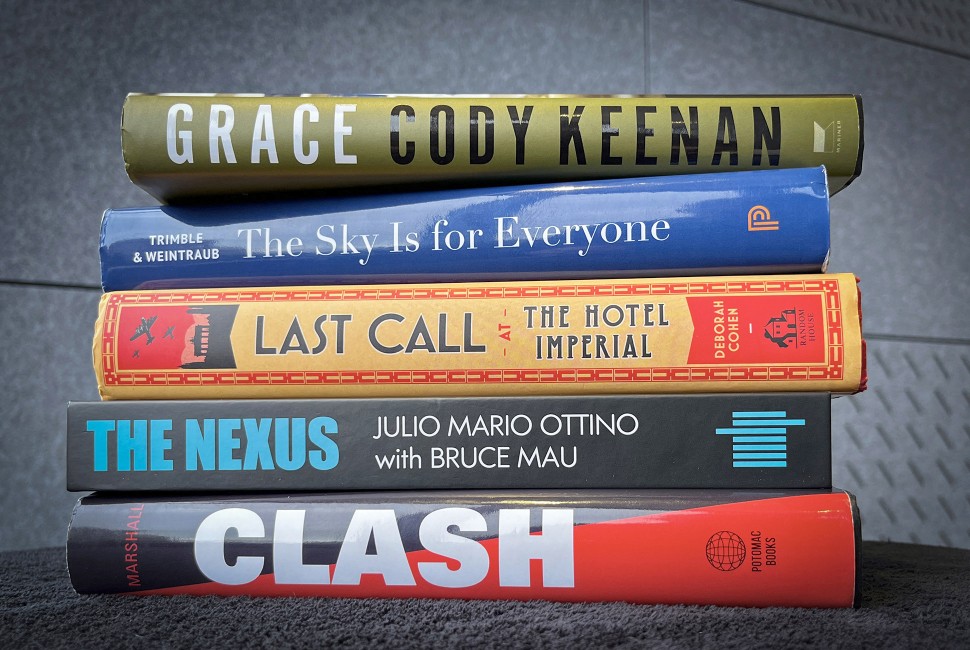Each year, Northwestern faculty write dozens of books that shape the national conversation, push the boundaries of scholarship and engage readers of all kinds. In 2022, they wrote about everything from the White House to outer space, showcasing the University’s expertise on a vast array of subjects.
Northwestern Now has compiled a short list of just a few of this year’s many general interest books by Northwestern faculty.
Last Call at the Hotel Imperial: The Reporters Who Took on a World at War
By Deborah Cohen, Richard W. Leopold Professor of History, Weinberg College of Arts and Sciences
This book traces the exploits, public and private, of four leading 20th-century foreign correspondents as they crisscross continents, interviewing leaders from Gandhi to Mussolini and shaping what Americans knew about a world in crisis.
“From the moment I opened the first box of letters between these extraordinary reporters, I was hooked,” Cohen said. “In an uncanny way, their struggles are our struggles. They saw the boundaries between inner life and the world collapse, and that’s what many of us have lived, too.”
Grace: President Obama and Ten Days in the Battle for America
By Cody Keenan, Visiting Professor of Political Science, Weinberg College of Arts and Sciences
Cody Keenan, President Obama’s former chief speechwriter, shares his insider account of 10 intense days in June 2015 — from a massacre by a white supremacist in South Carolina to consequential Supreme Court decisions to Obama’s “Amazing Grace” eulogy — offering a window on both the Obama White House and the craft of speechwriting.
“I wrote ‘Grace’ because it’s a story that demanded to be told,” Keenan said. “But I also wrote it for young people like my speechwriting students at Northwestern. I want them to know that politics and public service, while often frustrating, can also be joyous and exhilarating endeavors, worthy vessels for their time and energy that offer the sense of purpose they’ve been seeking.”
The Perfect Fit: Creative Work in the Global Shoe Industry
By Claudio E. Benzecry, Professor of Communication Studies and Sociology, School of Communication
How does something as simple as a shoe go from concept to completion? This book takes readers behind the scenes in the women’s shoe industry, from the craft of designing shoes to their production and distribution.
“While doing research in New York City, South China and South Brazil, I studied the people — especially technicians and fit models, but also designers, agents and production managers — behind what we in the U.S. think of as a seamless process of global commodities production and circulation,” Benzecry said. “In the book, I show the world of small techniques, routines and standards that make it possible for designers to continuously produce new, fashionable objects.”
Of Sound Mind: How Our Brain Constructs a Meaningful Sonic World
By Nina Kraus, Hugh Knowles Professor of Neurobiology, Communication Sciences and Otolaryngology, School of Communication
Processing sound is one of the brain’s most complex and important tasks, with implications for many core functions. But what exactly happens when we hear a bird’s song, or any other sound? In this book, neurobiologist Nina Kraus takes us inside the hearing brain to provide answers.
“The sound mind engages how we sense, feel, move and think,” Kraus said. “‘Of Sound Mind’ is my love letter to sound, how sound connects us, its biological impact on making us us, and how it affects the world we live in.”



